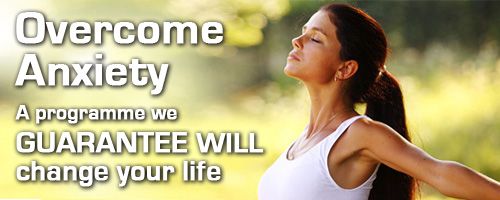What is social phobia/Social anxiety?
By Abi Tuddenham
Social phobia, also known as social anxiety disorder, is an extreme and persistent fear of social situations. It goes beyond being shy when meeting new people or feeling nervous about meeting the in-laws – it is a crippling condition in which social interaction fills the sufferer with anxiety and panic.
 People suffering from social phobia fear that they will act in an embarrassing way, humiliating themselves in front of others, particularly strangers, who will then ridicule them or judge them in a negative light.
People suffering from social phobia fear that they will act in an embarrassing way, humiliating themselves in front of others, particularly strangers, who will then ridicule them or judge them in a negative light.
It is thought that up to 10% of the adult UK population suffer social phobia, with women twice as likely as men to suffer (though men are more likely to seek medical help).
Social phobia has two subtypes:
Generalised and non-generalised
Those who suffer generalised social phobia have three areas of anxiety:
- Social interaction fear (such as meeting friends or going to parties)
- Performance fear (such as giving a presentation in front of others)
- Observation fear (being seen by others, even just walking down a street in public)
Sufferers of generalised social phobia are more likely to suffer another disorder alongside. Agoraphobia is acommon secondary phobia as sufferers may avoid social situations in order to avoid embarrassment, but become housebound by their fear – going out in public becomes a fear in itself.
The second subtype is non-generalised (specific) social phobia, in which sufferers’ fear is only confined to one situation, for example performing in front of others.
When we consider how many classes at school or college require presentations to the rest of the class, or how many professions (musician, actor, salesperson) involve talking to others we can see how prevalent this subtype can be.
Sufferers of both types of social phobia fear that they will act in front of others in a way that leads to embarrassment and humiliation. They may believe that everybody is looking at them or thinking badly of them. The anxiety about any given social situation may start hours, days or even weeks in advance.
Immediate physical symptoms
A social phobia sufferer may experience some, or all, of these symptoms during a social encounter:
- Racing heart and palpitations
- Shaking or trembling (which may lead the sufferer to cross his/her arms or hold a cup tightly to try and disguise it)
- Feeling sweaty and clammy
- Blushing
- ‘Mind going blank’ and not knowing what to say
- Dry mouth, possibly stuttering
- Feeling sick
- Panic attack
- Desperate desire to escape
- Sometimes even fainting.
Longer-term effects
These physical symptoms of anxiety may be experienced repeatedly at different social encounters and can lead to long-term effects which can seriously affect the lifestyle of the social phobia sufferer.
These can include:
- A tendency to critically analyse each interaction afterwards, not based on what actually happened but on the sufferer’s negative critique of how he or she felt (these thoughts may persist for some time after the event)
- Possible low self-esteem as sufferers can believe they have ‘performed’ badly in front of others (though this is often not the case)
- Avoidant behaviour – this can range from simply avoiding eye contact to completely avoiding social situations
- Social isolation (as sufferers avoid socialising)
- Self-consciousness – this comes as a result of repeatedly focusing inwards and becoming more aware of physical reactions and feelings, and negative thoughts and beliefs.
Treatment options
Our 'Overcoming Anxiety Programme' can change the lives of anxiety sufferers.
Social phobia can be easily treated but sadly, many sufferers don’t seek help. Only 5 – 10% of people with social phobia in the UK currently receive treatment – leaving a startling 90-95% suffering in isolation and silence.
Unfortunately, social phobia is a disorder which is unlikely to ‘just go away’ or get better by itself – only a third of social phobia sufferers recover without intervention. Those who do not seek medical help may find their education and job prospects – as well as their social and love lives – seriously limited by their symptoms.
Cognitive behaviour therapy
Cognitive behavioural therapy (CBT) is usually the treatment offered, and consists of identifying, analysing and changing thought patterns in order to reduce social anxiety and, essentially, change behaviour. CBT has a 75% success rate for sufferers of social phobia.
Medication
If therapy does not help, or if the patient needs extra help in addition to therapy, medication may be considered instead or alongside. Often an SSRI antidepressant is prescribed by a GP to alleviate the symptoms of social anxiety. It can be particularly useful in cases of extreme anxiety and/or depression.
Self-help
Many people suffering social phobia find it helpful to talk to others who understand how they are feeling. The disorder can be very isolating so finding a community of other sufferers can help. You will find details of websites which can put you in touch with other sufferers in the Resources section at the end of this article.
Gentle exposure to feared situations can help sufferers to gain confidence socially. For example, a social phobia sufferer who fears having to hold conversations on the phone could call a shop to check its opening hours. Someone who fears having to give a presentation at school or work could practise in front of a close friend or family member to gain confidence.
It may help to focus on relaxing and combating anxiety as many of the symptoms of social phobia are common to anxiety and panic. You may find it useful to practise deep breathing or a gentle form of exercise, such as yoga, which can make you feel calmer and more relaxed.
Although having a drink before meeting friends or performing in public may make you feel calmer and reduce your anxiety levels, self-medicating in this way can be dangerous. Excess alcohol can increase the symptoms of social phobia and lead to panic. There is also a very real risk of alcohol abuse or dependence if you start on this slippery slope. There are many other, less risky, ways to calm your anxieties and many people and organisations available to help you on the road to recovery.
A life free of fear and anxiety is possible through therapy and self-help. Regardless of how you long you have felt this way and how deep your fears and anxieties, you do not have to feel this way forever – help for a happier future is available.
Further reading
For more information on anxiety please visit:
Anxiety - What Is Anxiety
Fight or Flight Response Explained
Anxiety Symptoms
Anxiety Disorders
Coping with Anxiety – Anxiety Factors
Generalised Anxiety Disorder GAD
Panic Attacks – Anxiety Attacks
No More Panic
Anxiety Treatment
Anxiety Management – Managing External Stressors
Anxiety Management – Managing our Response to Stress
Anxiety and Debt
Social Anxiety
Anxiety as a Result of Domestic Abuse
Work Related Stress
Anxiety and Substance Abuse
Further Reading
For More information on phobias, please visit:
- Phobia
- Social phobia a readers experience
- Fear or Phobia - The Difference
- Arachnophobia
- Fear of Flying Course Review
- Fear of Flying
- Treatment for Phobias
- What is a Phobia?
|
SANEline/SANEmail |
Anxiety UK |
|
1st Floor Cityside House, 40 Adler Street, London, E1 1EE Helpline: 0845 767 8000 E-mail: [email protected] SANEline and SANEmail offer emotional support and information to those experiencing mental health problems, their families and carers. |
Zion Community Resource Centre,339 Stretford Road, Hulme, Manchester, M15 4ZY, E-mail: [email protected] Web: http://www.anxietyuk.org.uk/ Information and help for people with obsessions and anxiety problems |






